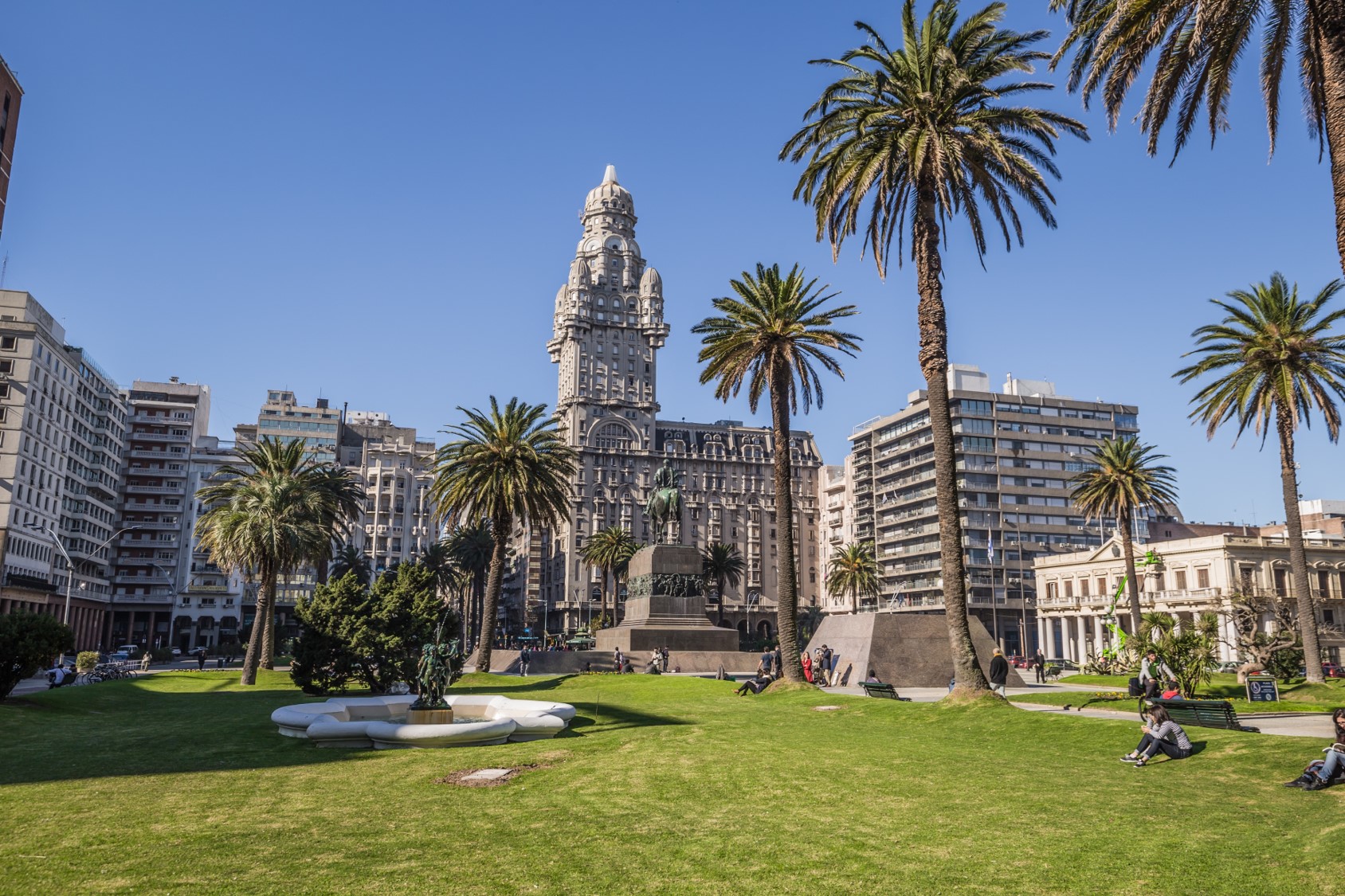
Jorge Borras
Uruguay, officially the "Eastern Republic of Uruguay," is a country located in southeastern South America, between Argentina and Brazil. It covers an area of 176,215 km² and has a population of approximately 3.5 million. Montevideo is its capital, home to 50% of the population.
Uruguay is the most comprehensive democracy in South America. This is reflected in the average score of 8.66 it obtained in the Democracy Index study recently published by The Economist Intelligence Unit, which includes four categories: electoral process and pluralism (10), functioning of government (8.93), political participation (7.78), political culture (6.88), and civil liberties (9.71).
The latest National Accounts report presented by the Central Bank of Uruguay (BCU), corresponding to the fourth quarter of 2024, indicates that the Gross Domestic Product (GDP), , increased 3.5% compared to the fourth quarter of 2023. This means that Uruguay's Gross Domestic Product (GDP) per capita in 2024 was 18,296 US dollars (USD).
Uruguay is the country with the highest and most well-distributed income in the region. Is the most reliable country to do business in one of the most economically attractive regions in the world.
Our country stands out not only for its political and social stability, but also for its attractive tax system, which offers a series of tax benefits for both individuals and companies. These benefits not only seek to encourage investment and economic development but also promote equity and competitiveness in the country.
Uruguay's economic stability, combined with significant tax advantages, has created an attractive environment for foreign companies. Furthermore, Uruguay guarantees the free repatriation of capital, which facilitates foreign investment.
A solid track record, along with its high potential for improving and developing regional businesses, are some of the reasons why global and regional companies choose Uruguay as a hub.
Punta del Este, one of South America's main beach resorts, is located 120 km from Montevideo. Many foreigners have decided to live in Uruguay, and particularly in Punta del Este and its surrounding areas. Such is the case of billionaire Marcos Galperin, owner of Mercado Libre and considered one of the richest people in America, who, as the World Bank (WB) points out, businessmen or entrepreneurs move to Uruguay in search of a "friendly tax environment."
Other characteristics that make Uruguay an attractive country for investment development:
1. Investment Promotion Regime (Law No. 16,906)
Uruguay has a special investment promotion regime that offers a series of tax incentives to companies investing in certain sectors and regions of the country. These incentives may include tax exemptions, tax credits, and corporate income tax reductions, as well as additional benefits for investment projects of national interest.
2. Free Trade Zones
Free trade zones in Uruguay offer a particularly favorable tax regime for companies operating within these areas, including exemptions from income tax, property tax, import and export taxes, as well as additional benefits in terms of labor and customs flexibility.
Although these tax-advantaged spaces have been operating in Uruguay for decades, currently, as is the case globally, the provision of services has taken center stage, using them as a platform for international business.
Although they originated as a demand from the logistics sector for goods and related services, as well as financial activities, in recent years they have seen significant growth in the services sector in general.
The buildings designated exclusively for free trade zones for services are located in the city of Montevideo; however, the World Trade Center (WTC) brand is currently developing the first free trade zone tower for services in the heart of Punta del Este, Maldonado.
It should be noted that in Uruguay, the general criterion is to tax income from Uruguayan sources, as opposed to the worldwide income criterion. This means that, in principle, a Uruguayan company that earns income abroad would not be covered by this income. This means that today, there are a large number of service activities provided from Uruguay to other countries. Even if they are not located in a free trade zone, they still do not pay taxes or the applicable income tax rate is very low. The same applies to trading operations carried out from Uruguay. Even though this tax advantage is being discussed nowadays mainly by the OECD, Uruguay is trying to keep it as a part of its fiscal features.
3. Services Export Regime
Uruguay has a special services export regime that offers tax benefits to companies that export services from Uruguay abroad. These benefits may include exemptions from income and capital taxes, as well as additional benefits in terms of administrative simplification and international promotion.
4-Discretionary Management
Uruguay has a free exchange system that allows users to sell or buy their products and conduct business in the currency of their choice. Companies can operate from Uruguay, using a bank account abroad. Capital and profits can be freely disposed of at any time, transferring them abroad if required. Uruguayan ATM’s allow their users to operate in the local currency UYU $ and in US dollars. Uruguayan banking system also allows the opening of Euros denominated accounts.
5-Equal Treatment for Residents and Non-Residents
Uruguay guarantees equal treatment for investors and restrictions-free business operations, both in terms of capital mobility and dividends, and in relation to the purchase and sale of foreign currency. The country is continuously working to achieve a favorable business climate and the greatest possible ease of operation for investors.
6-Modern Logistics
Uruguay has a first-class port infrastructure in Montevideo, from which the densest road network on the entire continent extends, with excellent connections to neighboring countries. It also has a modern airport, designated one of the best in the world. Both the country's ports and airport can operate under the free port/airport regime, which will allow it to carry out logistics operations, including adding value to goods, and re-exporting without taxation. A technology leader, Uruguay leads the ICT Development Index in Latin America prepared by the International Telecommunication Union (ITU). This fact is also reflected in the level of internet penetration and mobile phone users, where our country occupies a prominent position in the region. It also has the highest download speed in the region thanks to its modern infrastructure (Akamai – 2015) and the highest internet penetration.
7-Human Resources
Human resources in Uruguay are highly competitive, thanks to several factors, including the high quality of basic, technical, and university education, and the flexibility and ease of Uruguayan workers in adapting to new production processes or technologies. The Uruguayan workforce has shown a continuous increase in its ability to master other languages, particularly English.
8-Efficient Energy Policy
Uruguay has "Uruguay Natural" as its country brand. (https://uruguaynatural.com) This means that its positioning strategy is to show buyers that its products are made in the most environmentally friendly way possible. This demonstrates the country's great responsibility regarding environmental issues and is undoubtedly an added value for many consumers.
XLNC ARCHIVE| 26 March 2025

